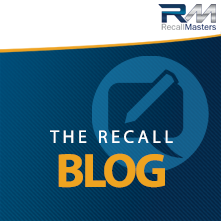One Man’s Trash is Another Dealer’s Treasure
One Man’s Trash is Another Dealer’s Treasure
A Blog Post by Sean Reyes, Chief Marketing Officer for Recall Masters
Not too long ago, in a parallel universe, we were all familiar with, vehicles lived lives then passed on at about the 100,000-mile mark. Whether they passed privately or through a dealership, at some point, they pretty much moved on to an auction, a wholesaler, a parts recycling center, or, potentially, a Buy-Here-Pay-Here store. Used vehicle values plummet at the 100,000-mile mark for two reasons. First, franchise dealers see them unfit for retail, and second, lenders rarely finance them.
When a consumer comes in wanting to buy a new (or new to them) vehicle and has a trade with more than 100,000 miles, the usual dealership values the trade by how much a wholesaler would pay for it. Many dealerships have wholesalers they deal with frequently, so the sales (or used car) manager simply makes a phone call, gets a buy-bid, then presents the trade-in value to the customer. Those vehicles then either go to an auction, get sold to a used car lot, or a Buy-Here-Pay-Here for cheap.
In today’s seller’s market, however, low inventory levels for new and used car acquisition have caused many franchise dealers to rethink their previous “set-in-stone” rules. An article in Automotive News shares how some dealers no longer shy away from these 100,000-mile cars; but, rather, embrace them. Because of consumer demand, dealers are making a rather substantial profit. It appears that 200,000 miles is the new 100,000 miles, according to an executive editor at Autotrader. Consumers aren’t running for the hills, but quite the opposite – they are embracing it.
These days, with new vehicles often commanding pricing well over MSRP, consumers are increasingly interested in finding a quality pre-owned car — even if it has more than 100,000 miles on it. Because lenders are buying deeper (worse credit) and willing to extend loans for these vehicles, some manufacturers have loosened qualifications for CPOs, so dealers are willing to retail them at higher costs. Dealers are also willing to ensure that the vehicle is mechanically sound and properly reconditioned before it hits the front line for the simple fact that they will now – for the time being – make a profit.
While it’s certainly good that franchise dealers are taking these steps, there are many more independent dealers across the country, and many of them don’t want to, or can’t, invest this reconditioning money into a vehicle pre-sale. Sure, they can make it look pretty; but many don’t even have their own service departments to perform repairs or even a proper safety inspection.
I’m not here to say that every vehicle sold – whether by a franchise or independent dealer – is inherently unsafe. BUT data confirms that there is a greater safety risk as that odometer creeps even higher.
Those premium prices that consumers are paying for these pre-owned vehicles may satisfy a need (or want) for a vehicle in the short term, but what happens when things go wrong with the vehicle (which everyone knows occurs with aging vehicles) There is typically not going to be any warranty on the vehicle for the consumer to lean on, the repairs may exceed what they can afford, and, in some cases, old vehicles are not even included in recalls. In this “perfect storm,” a customer could be left with 48+ months to go on their car payment with a vehicle that no longer works. It is a known fact that repossessions are currently rising.
In the end, it’s just as important for a consumer to know that a vehicle is unsafe and that there “may” be an inherent risk by buying a vehicle with such high mileage. Consumers must be cognizant of potential risks and consequences when making purchasing decisions. It’s not only recalls that make roads unsafe… ultimately, but unsafe cars as a whole do also. And nobody wants that.
About the Author


